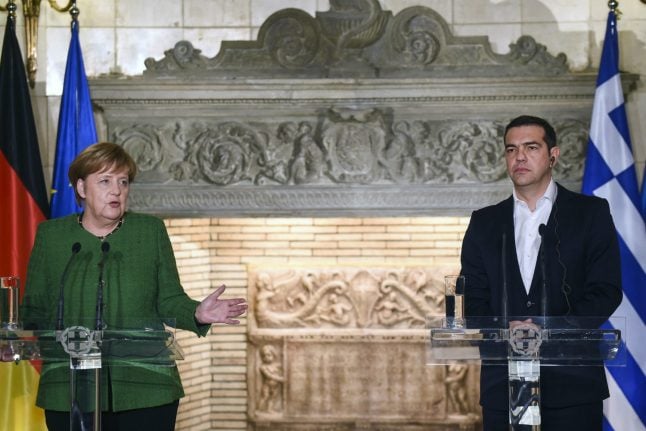“There will have to be another programme for Greece,” Wolfgang Schäuble said at an election campaign event near the northern city of Hamburg, the Frankfurter Allgemeine Zeitung and other media reported.
He added that “the public was always told so,” but his comments were stronger than previous ones in which he said a third aid package may be needed.
The indebted country, now in its sixth year of recession, has been forced to cut jobs, pay and pensions in order to secure €240 billion in rescue funds from the European Union and International Monetary Fund (IMF).
The “troika” of creditors – the IMF, European Commission and European Central Bank – will in September launch its next review of the Greek reform programme to determine whether it is eligible for the next instalment of the aid funds.
Nevertheless, Schäuble denied there would be another Greek debt “haircut” for creditors, saying the experience of the last one had not been positive.
But he told supporters of his conservative Christian Democratic Union (CDU) that Greece would need more international help to keep the interest that Athens pays on its debt from increasing too much.
“They’re not over the hill yet,” said Schäuble.
Chancellor Angela Merkel’s government, which faces elections on September 22nd, has been at pains to avoid discussion of more financial aid for Greece, an unpopular notion with many voters.
In her latest comments, quoted in the Ruhr Zeitung daily on Tuesday, she said: “We have always said that we will have to reevaluate Greece’s situation in late 2014 or early 2015. It is sensible to follow this timetable.”
Germany’s central bank, however, expects Greece to receive another bailout loan later this year or by early 2014, news weekly Der Spiegel reported earlier this month, citing an internal Bundesbank document.
The Bundesbank’s experts also wrote they rated the risks of such an international loan programme as “exceptionally high” and the Greek government’s performance so far as “barely satisfactory”, the magazine said.
Meanwhile, the European Central Bank said German board member Jörg Asmussen will visit Greece Wednesday ahead of the review of the country’s economic reform programme.
AFP/jcw



 Please whitelist us to continue reading.
Please whitelist us to continue reading.
Member comments